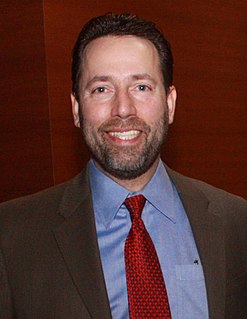A Quote by Thomas Sowell
Even if the government spends itself into bankruptcy and the economy still does not recover, Keynesians can always say that it would have worked if only the government had spent more.
Related Quotes
Government is not a solution to our problem, government is the problem. ... Government does not solve problems; it subsidizes them. Government's view of the economy could be summed up in a few short phrases: If it moves, tax it. If it keeps moving, regulate it. If it stops moving, subsidize it. ... The problem is not that people are taxed too little, the problem is that government spends too much.
The government is always looking for something that appears more dangerous than itself, and these criminals seem to fit the bill. Never mind that it was the government that promised but failed to protect us. It was the government that prevented the airlines from protecting themselves. It was the government that so badly botched the rescue operations. It was the government that had stirred up the hate that led to the terrorism.
Americans believe that the private sector is always more efficient and cheaper than big government, and particularly when you go among Republicans, even after five beers, they still believe it. But I always say, "If it's really true, why would they need that 12 percent extra on a traditional government program? Explain to me why something that costs more saves me money as a taxpayer.".
It is hard to imagine having a government more secretive than the United States. Virtually everything that government does, of any significance, is conducted behind an extreme wall of secrecy. The very few leaks that we’ve had over the last decade are basically the only ways that we’ve had to learn what our government is doing.
What would've happened, do you think, had the government not intervened in October 2008? The catastrophe to the economy would've been absolutely unbelievable. And yet classical economists say, "Oh, well, no, it would've adjusted perfectly happily, a few weeks of pain and then everything would've gone on as before, without a banking system left." And that's what makes it so maddening, that these bankers are back saying it was all the government's fault. The government saved their skins. It didn't want to, but it needed to save their skins in order to save the rest of us.
The left wants you to believe that true morality is defined by how much money you give the government, how much money you pay the government, how much money the government gets from you, because only the government does good stuff, only the government does good works, only the government cares about people. It's bogus.
We must, therefore, emphasize that 'we' are not the government; the government is not 'us.' The government does not in any accurate sense 'represent' the majority of the people. But, even if it did, even if 70 percent of the people decided to murder the remaining 30 percent, this would still be murder and would not be voluntary suicide on the part of the slaughtered minority. No organicist metaphor, no irrelevant bromide that 'we are all part of one another,' must be permitted to obscure this basic fact.
The analysis in the era of Ronald Reagan and Margaret Thatcher was that government was interfering with the efficiency of the economy through protectionism, government subsidies, and government ownership. Once the government "got out of the way," private markets would allocate resources efficiently and generate robust growth. Development would simply come.
In the first part of 'Rights of Man' I have endeavoured to show...that there does not exist a right to establish hereditary government...because hereditary government always means a government yet to come, and the case always is, that the people who are to live afterwards, have always the same right to choose a government for themselves, as the people had who have lived before them.
It seems to me that if one had kept silence up to now regarding religion, people would still be submerged in the most grotesque and dangerous superstition ... regarding government, we would still be groaning under the bonds of feudal government ... regarding morals, we would still be having to learn what is virtue and what is vice. To forbid all these discussions, the only ones worthy of occupying a good mind, is to perpetuate the reign of ignorance and barbarism.
But again, you know, the views that we've expressed are transferring power back from the federal government to the states, giving Alaska an incredible opportunity to expand its economy, especially at a time when our federal government is coming close to bankruptcy. So that is a broad-based appeal. It's not an extreme view.
































